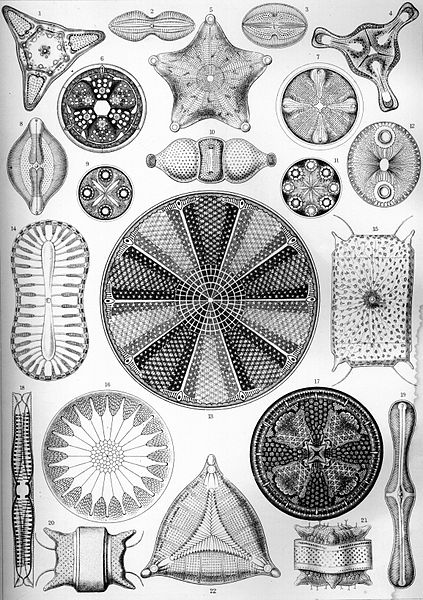Teach This Poem is a weekly series featuring a poem from our online poetry collection, accompanied by interdisciplinary resources and activities designed to help K-12 teachers quickly and easily bring poetry into the classroom.

The following activities and questions are designed to help your students use their noticing skills to move through the poem and develop their thinking about its meaning with confidence, using what they’ve noticed as evidence for their interpretations. Read more about the framework upon which these activities are based.
- Warm-up (pair share): With a partner, discuss people or things that you are grateful for. Be sure to explain why.
- Before Reading the Poem (noticing and pair share): Look carefully at the image of the diatomea. What stands out to you? Why?
- Reading the Poem: Read the poem “Dusting” by Marilyn Nelson silently. Notice the words and phrases that jump out at you, then think about what you noticed as you annotate the poem.
- Listening to the Poem (enlist two volunteers to read the poem aloud): Listen as the poem is read aloud twice, and write down any additional words and phrases that stand out to you. Call back the lines that you like by saying these lines aloud with your group.
- Small-group Discussion: Share what you noticed in the poem with your partner and another pair of students. Based on the details you just shared with your small group, what connections can you make between the poem and image? In what ways are they similar? Different?
- Whole-class Discussion: How would you describe the speaker? Why might the speaker wish to express gratitude for something as minute as dust?
- Extension for Grades 7-8: Think back to what you shared with your partner at the beginning of class. Write your own gratitude poem to someone or something you are thankful for.
- Extension for Grades 9-12: Read more of Marilyn Nelson’s poetry, like the poems “The House on Moscow Street” or “Mama’s Promise,” and learn about her biography. Write a letter to Nelson explaining your reaction to her poetry.
More Context for Teachers: “Poetry can allow scientists to engage, learn, and generate new ideas by enabling them to gain distance from an immediate problem or topic. By stepping away from a scientific problem and exploring poetry, scientists can foster creativity.” Read this article about the relationship between poetry and science.
